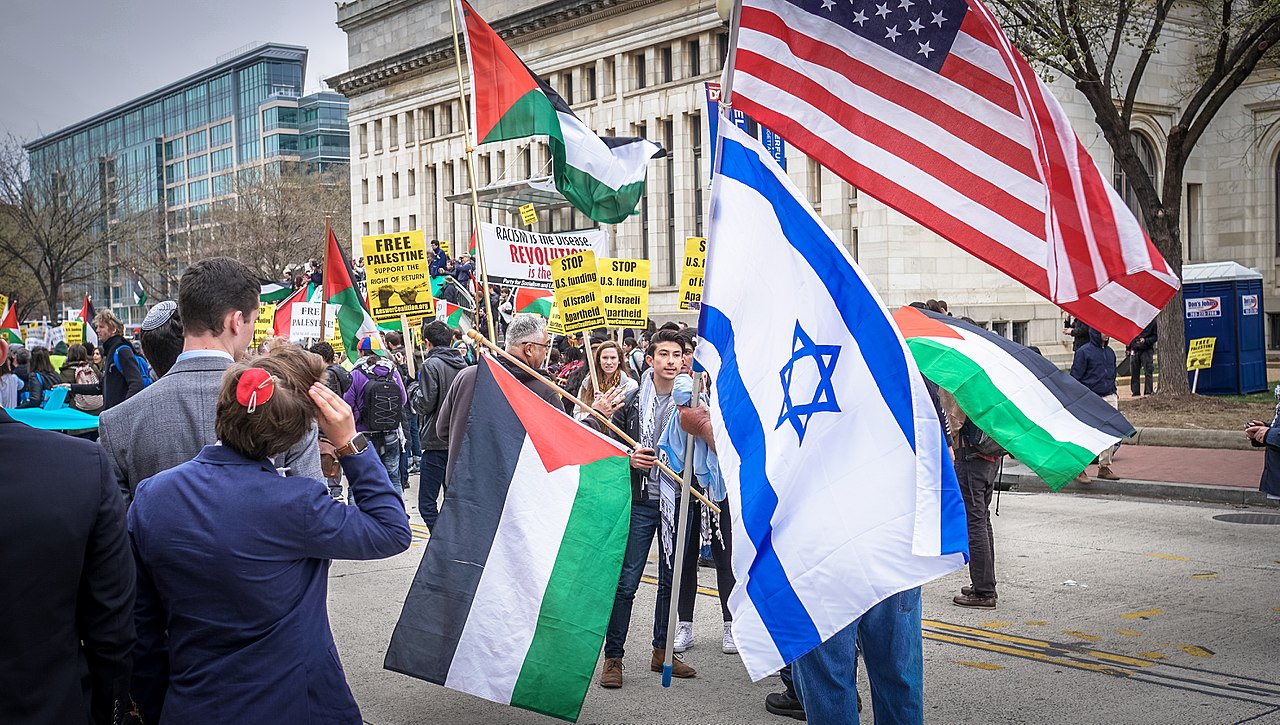Jan. 6 and Beyond: Why the U.S. Should Pass Domestic Terrorism Legislation

Published by The Lawfare Institute
in Cooperation With

Editor’s Note: The storming of the U.S. Capitol on Jan. 6, 2021, was one of the most searing acts of political violence in U.S. history. Often labeled as terrorism, it raises the question of whether the United States, like most other democracies, should have a strong domestic terrorism law at the federal level. Jacob Ware and Ania Zolyniak of the Council on Foreign Relations assess this question, examining how Jan. 6 strengthens the arguments on both sides, ultimately concluding that stronger domestic terrorism laws are called for.
Daniel Byman
Domestic terrorism charges were absent from the charges brought against those who attacked the U.S. Capitol on Jan. 6, 2021—not because they don’t apply but because they simply don’t exist. Indeed, in the days that followed the attack, the Congressional Research Service neatly captured the complicated question of how to define the incident and the individuals involved, noting that “an individual may commit criminal acts that are widely considered domestic terrorism and be prosecuted for the criminal acts themselves, but an individual cannot be charged with committing an act of domestic terrorism under current federal law.” With the number of charged Jan. 6 defendants at more than 1,000, it is high time to take stock of the prosecutions to date—and assess whether and how the event strengthens or weakens the case for new domestic terrorism legislation.
Although the U.S. Code defines “domestic terrorism” using language laid out in the 2001 Patriot Act, the entry does not carry a criminal penalty, meaning individuals cannot be charged for such acts at the federal level. In rare cases, federal prosecutors are able to request a terrorism enhancement on top of existing convictions, which can lengthen sentences. Some states, such as New York, have their own domestic terrorism statutes to address politically motivated violence—which was applied, for example, after the 2022 Buffalo supermarket shooting. But federal prosecutors do not have the option of bringing a domestic terrorism case on crimes that clearly fit the Patriot Act’s statutory definition—a gap in their arsenal that many observers deem glaring as domestic terrorism rises to become a leading national security concern.
Yet domestic terrorism legislation may be unnecessary or even counterproductive. Many Jan. 6 rioters have been prosecuted successfully without a federal law on the books. To understand the utility of a domestic terrorism statute, it is important to look beyond Jan. 6 to consider how it would affect how these crimes are punished and deterred.
Further Laws Might Be Unnecessary
Opponents of a domestic terrorism statute assert that prosecutors already have ample tools with which to hold individuals like the Jan. 6 rioters accountable. The Department of Justice’s criminal investigation into the attack on the Capitol has already become the largest in its history, and a quick look at the complaints filed demonstrate the scope and diversity of applicable charges prosecutors chose from: conspiracy to obstruct an official proceeding, obstruction of an official proceeding, civil disorder, and act of physical violence in the Capitol grounds or buildings, among many others. Additionally, in January of this year, four Oath Keepers were convicted of seditious conspiracy for their actions in the Capitol riots—marking the first time the seditious conspiracy statute (18 U.S.C. § 2384) has been used successfully since the 1995 conviction of the “Blind Sheikh.” To date, 14 Jan. 6 defendants have been convicted of seditious conspiracy, including, among the most recent convictions, Proud Boys chairman Henry “Enrique” Tarrio. Other cases to which a domestic terrorism statute might apply have used other existing laws in similar ways. For example, among the 63 charges against Robert Bowers for attacking the Tree of Life synagogue in Pittsburgh, Pennsylvania, were 13 additional violations of the Matthew Shepard and James Byrd, Jr., Hate Crimes Prevention Act in a superseding indictment.
By the letter of the law, all of these charges cover and apply to behavior defined as domestic terrorism under 18 U.S.C. § 2331(5):
(5) the term “domestic terrorism” means activities that—
(A) involve acts dangerous to human life that are a violation of the criminal laws of the United States or of any State;
(B) appear to be intended—
(i) to intimidate or coerce a civilian population;
(ii) to influence the policy of a government by intimidation or coercion; or
(iii) to affect the conduct of a government by mass destruction, assassination, or kidnapping; and
(C) occur primarily within the territorial jurisdiction of the United States…
Clearly, prosecutors have tools at their disposal to target alleged domestic terrorists. But they may not have the resources, such as sufficient funds and personnel to tackle the issue, which lawmakers are working to amend. Alternatively, they may lack the will. During the Trump administration, law enforcement agencies were specifically directed to focus on left-wing extremism over threats from the far right, even though FBI and Homeland Security officials repeatedly identified far-right extremists as the primary threat.
The kaleidoscopic nature of the charges filed against alleged and convicted participants of the Capitol riots demonstrates another concern raised by the prospect of creating a single, comprehensive domestic terrorism charge: Violent extremist action, whether left or right wing, is extraordinarily heterogeneous. A criminal statute for domestic terrorism based on the 18 U.S.C. § 2331(5) definition would theoretically apply both to the actions of Gina Michelle Bisignano, who egged on rioters outside the Capitol with a megaphone and pleaded guilty to six of seven charges (including obstruction of an official proceeding and engaging in physical violence in a restricted building or grounds), and to those of the pro-independence Puerto Rican activists who stormed the U.S. Capitol in 1954 and shot several U.S. congressmen (they were convicted of seditious conspiracy). Grouping all of these actions under the umbrella of domestic terrorism obfuscates specific case details and contexts, creating a false equivalency of degree, effect, and motivation. Additionally, labeling Bisignano or Gerard Richard Lee, who spray painted swastikas on federal property in Boston, as domestic terrorists alongside the likes of the Buffalo supermarket shooter could prompt aggrieved individuals who commit despicable, lower-level offenses to identify and form a more coherent and stronger affinity with extremist groups.
The enactment of a domestic terrorism statute also carries the risk of unintended applications and abuse that may result in discriminatory targeting of groups like environmental and Black Lives Matter activists—who some observers claim were unfairly targeted during the protests of summer 2020 by biased prosecutors who sought charges and sentences disproportionate to crimes committed. Furthermore, past laws intended to improve prosecutorial and investigative capacity vis-a-vis specific criminal activities have expanded far beyond their initial objectives. The 1970 Racketeer Influenced and Corrupt Organizations Act was passed to bolster efforts to crack down on organized crime, with a particular focus on the Mafia. More recently, though, it has been used to pursue environmental and pro-life groups. Another concerning ramification of a domestic terrorism statute that may be less inadvertent is the potential for a post-9/11-type expansion of government surveillance authorities. The government has already established a new precedent for the scope of citizen data collection in domestic terrorism-related investigations in one Jan. 6 case, using evidence obtained from an unprecedented geofence warrant that covered over 5,000 devices.
Why the Status Quo Is Insufficient
Yet the case for domestic terrorism legislation is also strong. On March 2, 2021, FBI Director Christopher Wray laid out in very simple terms how his agency viewed the assault on the U.S. Capitol: “That attack, that siege was criminal behavior, plain and simple. And it’s behavior that we, the FBI, view as domestic terrorism.” Allowing the Justice Department’s prosecutors to make such a case would be a valuable step, for several reasons.
First and foremost, the absence of domestic terrorism legislation poses an optics problem. At present, when faced with an international terrorism case, prosecutors will usually employ 18 U.S.C. § 2339B—the material support to terrorism statute, which broadly defines a range of “support” to organizations designated by the State Department as foreign terrorist organizations (FTOs). These groups are mostly Islamist extremist groups, and the average defendant is a person of color. With no equivalent domestic statute, white supremacists—who often commit far more damage as part of their criminal acts, often including mass violence against minority communities—avoid a formal “terrorism” label. As former Acting Assistant Attorney General for National Security Mary McCord wrote for Lawfare after the Pittsburgh attack, the “label carries weight.” Allowing for the Jan. 6 defendants to be charged as terrorists, then, would have created “a moral equivalency between domestic terrorists and international terrorists, and [would signal] to Americans that the threat of extremism is just as significant when it is based on domestic political, economic, religious or social ideologies as it is when based on Islamist extremist ideologies.”
Beyond the optics question, the different prosecutorial options also affect sentencing. The average Islamic State material support case has yielded a 13.5-year sentence—often for failed plots or financial crimes. Jan. 6 defendants who were convicted of felonies have been sentenced to just 33 months—less than three years. The 25 defendants convicted of assaulting police officers received an average of 48 months. Prosecutions under 18 U.S.C. § 1512(c)(2), a witness tampering statute that would carry some of the lengthiest penalties, demonstrate the straws the government is grasping at to bring Jan. 6 rioters to justice for their specific, despicable offenses; charges under the statute are being contested in court as to their applicability and are in serious jeopardy of being tossed. Accordingly, the lack of a domestic terrorism law also poses a recidivism issue. Although many of the Jan. 6 attackers have indeed been prosecuted for the crimes they committed, they received short sentences, meaning several hundred have either already been released or never saw jail time. Some have renewed their militant rhetoric—and several have been arrested again “for subsequent crimes involving guns, drugs and domestic abuse.” The recidivism challenge was evidenced even more clearly by recent charges unsealed against a former leader of the neo-Nazi Atomwaffen Division who was sentenced on explosives charges in 2018. He was released in 2021 after serving over three years of his five-year sentence, but this February, he was arrested again for a plot to attack substations around Baltimore.
The benefit of sentencing domestic terrorism defendants to longer terms (and the added optics correction that would provide) would accrue only after an attack has occurred. The real legal gap exists before the act of violence, when the would-be terrorist is still planning their attack. Domestic terrorism laws would have the option of criminalizing attempts and conspiracies, meaning even failed plots would be included, and deterrence against such crimes would therefore likely be far stronger. Additionally, convictions under a more uniform domestic terrorism charge for those plotting violence meeting the definition would also encourage better data collection, which would allow the government to allocate resources more appropriately to the most pressing terrorism threats. Given that far-right terrorism has been rising for years, taking advantage of a seemingly sluggish government response, such prioritization may have helped the government avoid Jan. 6 in the first place by ensuring sufficient tools were arrayed against the far-right fringe. Indeed, the FBI Agents Association has repeatedly called for domestic terrorism legislation, which they argue “would ensure that FBI Agents and prosecutors have the best tools to fight domestic terrorism.”
Finally, treating far-right violence more clearly as domestic terrorism would also have the important benefit of signaling to U.S. allies similarly concerned with rising violence within their own borders that the United States plans to be a leader in this space. For instance, Canada, in response to Jan. 6, designated the Proud Boys as a “terrorist entity” but has done so without any formal U.S. recognition of the threat the group poses. This risks the United States being seen by allies and adversaries as intransigent at best, and condoning at worst. As Jason Blazakis, who worked for the State Department’s Bureau of Intelligence and Research, warns, “[I]t is not uncommon for the United States to call on other countries to change their laws so that these arrests or sanctions can occur. Yet, if international partners were to call on the United States to arrest their citizens for engaging in terrorism, the U.S. response would be lackluster, unless that citizen was associated with an already designated FTO.”
Beyond Jan. 6
The irony of cases like the Bowers and Jan. 6 prosecutions lies in the very fact that they may actually be the wrong cases to consider when debating the enactment of a domestic terrorism statute. They are indeed textbook examples of domestic terrorism—but ones where the offending activities are also already captured by the articulation of current criminal statutes, in part because the attacks were ultimately successful. But what about cases like the 2012 Hutaree militia plot, in which members of an alt-right Christian militia planned to kill a police officer in order to attack other officers who would attend the funeral? When brought to trial, the defendants were acquitted of seditious conspiracy charges. Though they may not have been trying to “resist some positive assertion of authority by the government” or influence or “affect the conduct” of the government, their actions could be seen as trying to “intimidate or coerce a civilian population.” Or the 1988 Fort Smith conspiracy trial, in which 13 white supremacists were acquitted of plotting to overthrow the government by force, which would have involved killing a federal judge and FBI agent? Perhaps prosecutors would have had more luck charging these defendants under a terrorism statute identical to 18 U.S.C. § 2332(b), which lays out the criminal penalties for international terrorism, with only the word “outside” changed to “inside.” It is worth reiterating that when Congress passed the Patriot Act, they made the explicit decision to add a definition for domestic terrorism to 18 U.S.C. § 2331, which had included a definition for international terrorism since 1992.
But even if we accept that the Jan. 6 attacks were successfully prosecuted without domestic terrorism laws, a new statute would be beneficial going forward. The historical legal record of that tragic day in the nation’s capital will state that the vast majority of the Jan. 6 criminals were not political actors—they merely trespassed, obstructed proceedings, or scuffled with police. In avoiding the “terrorism” label, the attackers will avoid the shame and judgment so often placed on violent extremists of color. And they will avoid the longer sentences required to deter further acts, while the United States also fails to signal to partners and allies that it seriously condemns the political nature of the violence that occurred.
Despite the commendable efforts of the federal prosecutors, then, the work of seeking legal redress for Jan. 6 will likely always feel incomplete.





